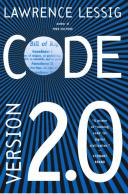Книга: Code 2.0
Regulability
Regulability
“Regulability” is the capacity of a government to regulate behavior within its proper reach. In the context of the Internet, that means the ability of the government to regulate the behavior of (at least) its citizens while on the Net. The story about Boral was thus a story about regulability, or more specifically, about the changes in regulability that cyberspace brings. Before the Internet, it was relatively easy for the attorney general of Boral to control commercial gambling within her jurisdiction; after the Internet, when the servers moved outside of Boral, regulation became much more difficult.
For the regulator, this is just a particular instance of a much more general story. To regulate well, you need to know (1) who someone is, (2) where they are, and (3) what they’re doing. But because of the way the Internet was originally designed (and more on this below), there was no simple way to know (1) who someone is, (2) where they are, and (3) what they’re doing. Thus, as life moved onto (this version of) the Internet, the regulability of that life decreased. The architecture of the space — at least as it was — rendered life in this space less regulable.
The balance of Part I is about regulability. Can we imagine a more regulable cyberspace? Is this the cyberspace we are coming to know?
- Part One. “Regulability”
- Identity and Authentication: Regulability
- Regulating Code to Increase Regulability
- Who did What, Where?
- Part Two - Regulation By Code
- Part Three - Latent Ambiguities
- PART V Programming Linux
- PART VI Fedora Housekeeping
- PART VII Appendices
- Regulating Open Code
- Part II Application Development Using C#
- Part Five - Responses




